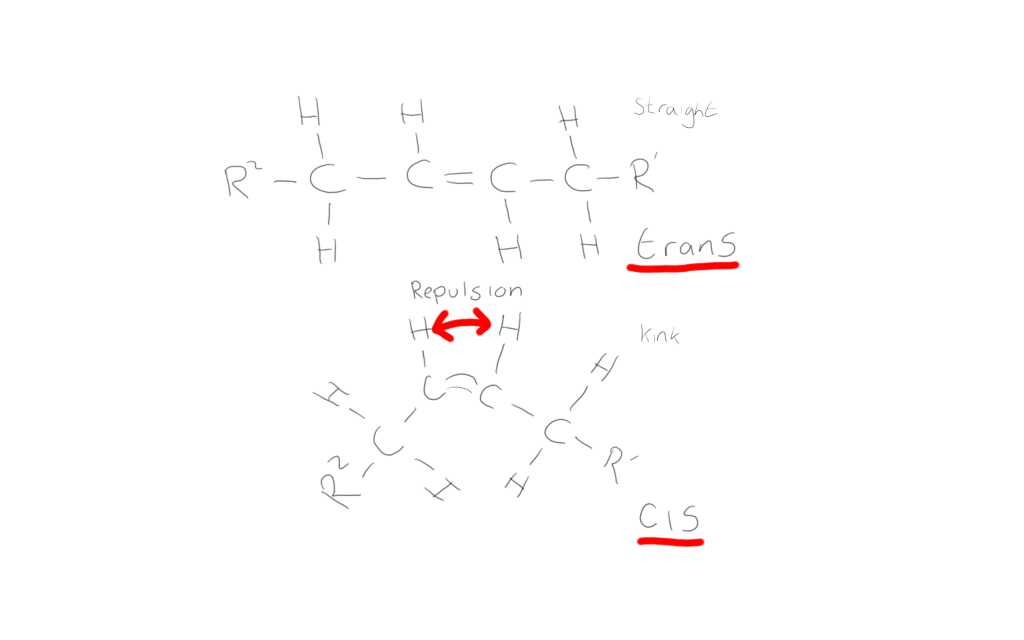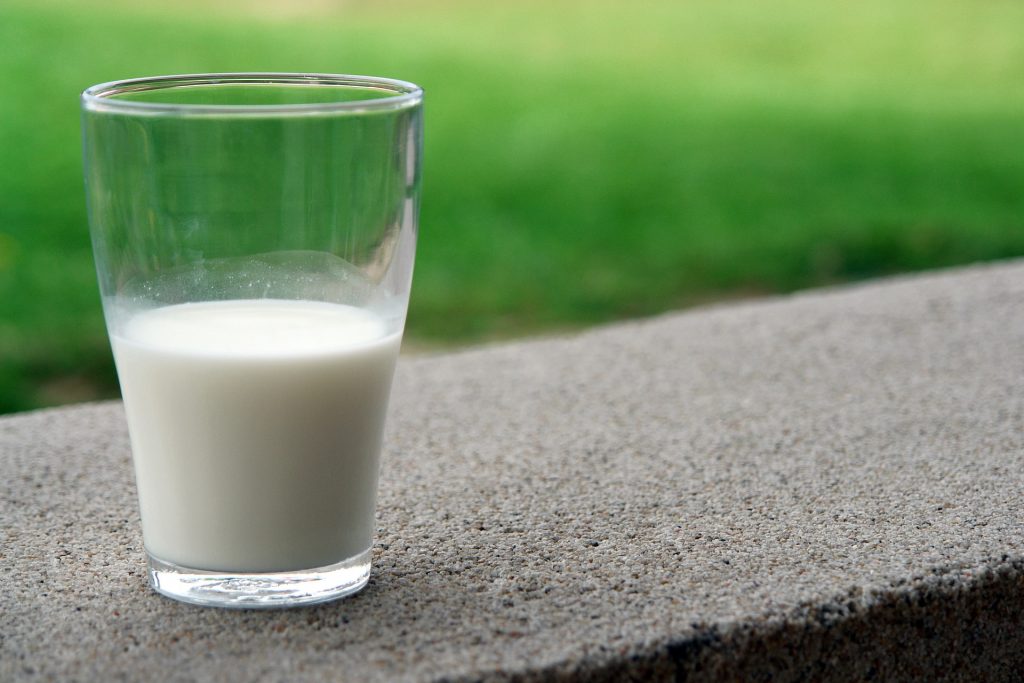 The nutrition of dietary fat is highly complex, and often misunderstood. In human nutrition there are a number of distinct groups of dietary fat and they can all have different physiological and biochemical effects. The main groups of dietary fat are saturated, monounsaturated, polyunsaturated and trans fats. These categories have broadly different effects, but more importantly within each group, individual compounds can have quite different metabolic fates to other compounds within the same group. For example, short and medium chain saturated fatty acids are absorbed via a completely different route to long chain saturated fatty acids. Two of the polyunsaturated fatty acids are essential and required for eicosanoid formation, whereas the others are not. These nuances in the biochemistry and physiology of fatty acids make determining their effects on animals and humans quite problematic. The trans fats are a particular case in point because evidence suggests that their overall effects on health are detrimental.
The nutrition of dietary fat is highly complex, and often misunderstood. In human nutrition there are a number of distinct groups of dietary fat and they can all have different physiological and biochemical effects. The main groups of dietary fat are saturated, monounsaturated, polyunsaturated and trans fats. These categories have broadly different effects, but more importantly within each group, individual compounds can have quite different metabolic fates to other compounds within the same group. For example, short and medium chain saturated fatty acids are absorbed via a completely different route to long chain saturated fatty acids. Two of the polyunsaturated fatty acids are essential and required for eicosanoid formation, whereas the others are not. These nuances in the biochemistry and physiology of fatty acids make determining their effects on animals and humans quite problematic. The trans fats are a particular case in point because evidence suggests that their overall effects on health are detrimental.
Trans fats are unsaturated fats that contain a double bond. In most fats double bond produce a natural kink to the molecule because the hydrogens are positioned on the same side of the molecule and repel one another. However in a trans fat the molecule becomes twisted and this causes the hydrogens to position themselves on each side of the double bond, removing the repulsive force and straightening the molecule. The difference between a trans fat and its cis counterpart is simply the presence of a kink in the molecule in the cis variant. While this effect may seem small it can be significant to human biochemistry. Animals accumulate trans fats in their cell membranes to increase fluidity, and the kink prevents the close packing of molecules. However, trans variants are also incorporated into cell membranes, but can decrease fluidity. In addition, trans fats can enter metabolic pathways and interfere with normal cis fatty acid metabolism. In particular trans fats may interfere with the synthesis of eicosanoids.
Trans fats are present in the diet as natural and synthetic variants. Natural trans fats come from ruminant products such as milk. Ruminant synthesis a fatty acid called conjugated linoleic acid (CLA), a compound that has been shown to have beneficial effects against cancer and cardiovascular disease in humans. However, the synthesis of this compound requires the formation of an intermediate compound which is a trans fat called vaccenic acid (trans-11, C18:1). Conjugated linoleic acid is a mixture of trans and cis components (c-9, t-11 CLA, t-10, cis-12 CLA) and so consumption of ruminant product made from milk ultimately supplies both CLA and vaccenic acid, and this provides trans fats in the diet. Synthetic trans fats are a product of the hydrogenation of vegetable oils to remove their double bonds in the manufacture of spreads (a process called hydrogenation). During this process some of the fatty acids only become partially hydrogenated, forming trans fats such as elaidic acid (t-9 octadecanoic acid).

The structure of trans and cis fatty acids. The presence of hydrogens on opposing sides of the double bond (the trans configuration) straightens the kink normally found in cid fatty acids. R1 and R2 refer to the ‘rest’ of the molecule (not drawn).
Synthetic trans fats may have detrimental effects on health. In particular, they may increase the risk of cancer and cardiovascular disease through their ability to interfere with essential fatty acid metabolism. In the Nurses Health Study, a 2 % increase in trans fats was associated with doubling of the risk of cardiovascular disease. However, controversy exists between the effects of synthetic versus natural trans fats. A number of studies have compared intakes of trans fats from natural and synthetic sources in order to determine the effects on plasma lipoprotein levels (as a marker for cardiovascular risk). For example in one study, researchers compared the effects of various trans fat treatments on human low density lipoprotein levels. The treatments were 0.1 % mixed trans fats (control), 3.3 % vaccenic acid, 3.3 % mixed isomer of trans fats from vegetable oils, or 0.9 % (c-9, t-11-CLA). Healthy subjects consumed the diets by replacing saturated fat in the diet with their trans fats and followed the diets for 24 days.
The results of the study showed that both natural and synthetic trans fats caused significant changes to plasma lipoprotein levels. Compared to the control, both vaccenic acid and the synthetic trans fats from vegetable oil caused increases in total cholesterol and LDL cholesterol, and this increase was greater in vaccenic acid. Vaccenic acid also caused increases in very low density lipoprotein (VLDL, also called triglycerides) and lipoprotein(a). These changes are generally regarded as increasing the risk of cardiovascular disease. However vaccenic acid also increased high density lipoprotein (HDL) cholesterol compared to the control (which is generally regarded as decreasing the risk of cardiovascular disease). The 0.9 % c-9, t-11-CLA lowered plasma levels of VLDL, which suggests that it had a beneficial effect. These results therefore suggest that at these levels, both vaccenic acid and synthetic acids may have some detrimental effects on cardiovascular risk. However, vaccenic acid also shows some beneficial effects. The c-9, t-11-CLA form of CLA appears to show only beneficial effects.

Milk is the main form of natural trans fats in the diet. Vaccenic acid is the main trans fats in milk. However, there is little evidence that milk is detrimental to the health. On the contrary, those who consume milk tend to have lower body weights than those who do not.
These results are interesting because firstly they confirm that CLA has beneficial effects. The ability of CLA to lower triglycerides is consistent with other studies showing it has insulin sensitising effect, and may have downstream beneficial effects on triglyceride levels. Secondly, both natural (vaccenic acid) and synthetic trans fats may have some detrimental biochemical effects, but vaccenic acid may counter some of the negative effects with beneficial lipoprotein changes. One important thing to stress about this research is that the levels of natural trans fats were quite high. Vaccenic acid is present in the diet at less than 2 % total energy (ruminant products ~ 5 % trans fats), so much lower levels than used in this study (3.3 % total energy). However, synthetic trans fats can be present at levels of 40 % of total fat from vegetable oils. There is no evidence that drinking milk has negative health effects in the long term, despite the intake of vaccenic acid. There is evidence that synthetic trans fats are detrimental to the health.
Eat Well, Stay Healthy, Protect Yourself.
RdB
